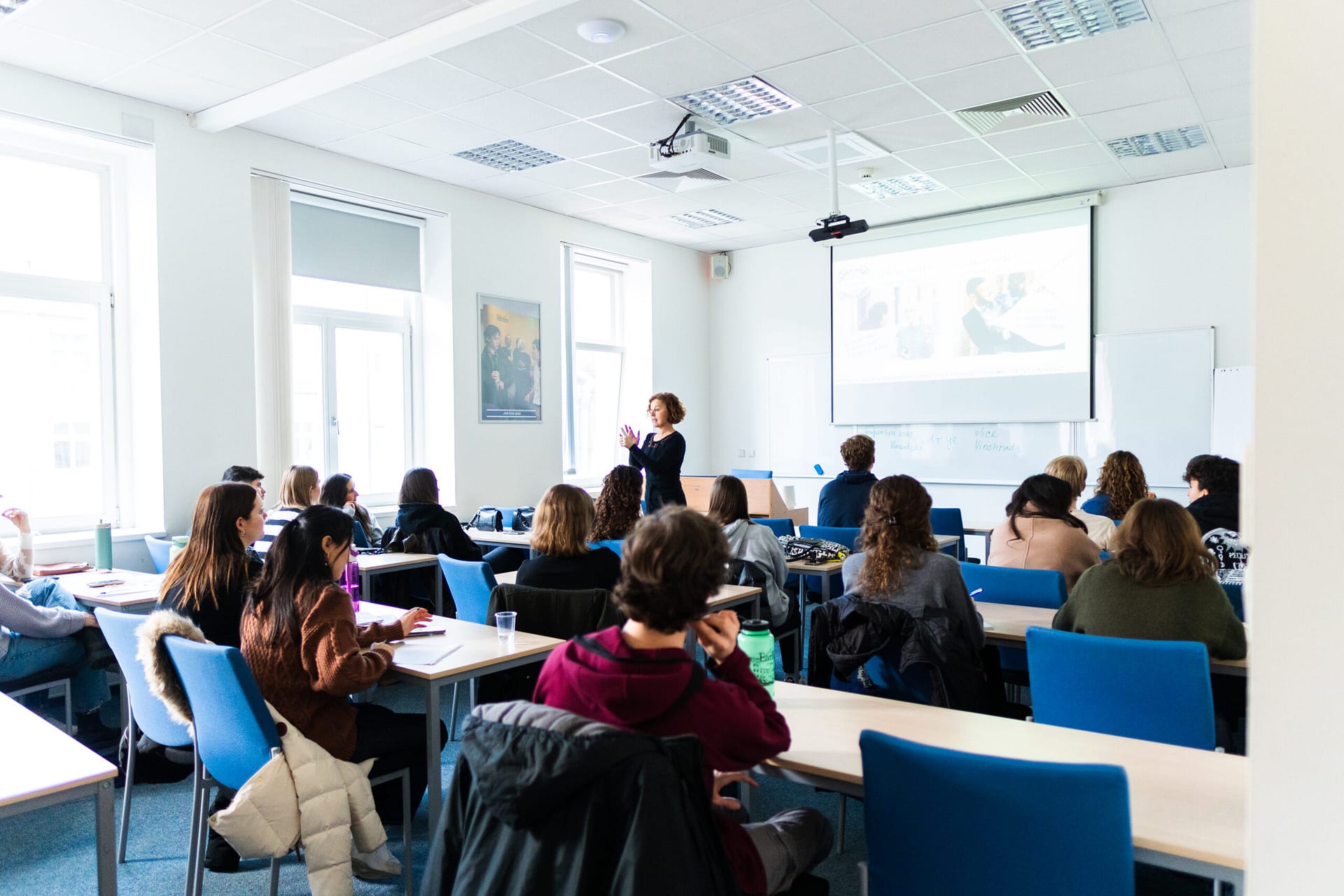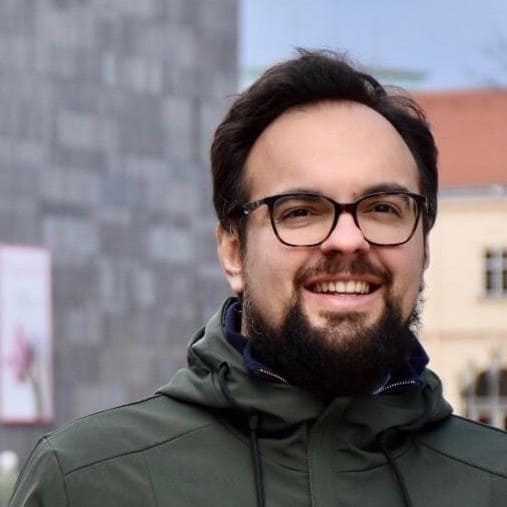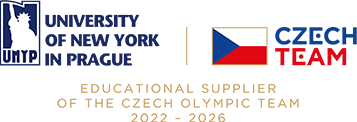UNYP Hosted International Teaching Week

Last week, UNYP once again had the pleasure of hosting International Teaching Week—an annual tradition that brings together academic expertise from across Europe and beyond. This year’s edition featured visiting professors from several partner institutions, including Webster Vienna Private University, IPAG Business School, Vilnius University, FONTYS University of Applied Sciences, and UIC Barcelona.

As always, it was a fantastic opportunity for our students to experience a wide range of global perspectives in the classroom, and for faculty to engage in enriching academic exchange. One of our guest lecturers was Dr. Marco Bocchese from Webster Vienna, who joined us for a short but impactful visit. Below, we share a short interview with Dr. Bocchese about his background, the course he taught at UNYP, and his impressions of the university and the city of Prague.
Marco, it’s great to have you here at UNYP. Can you briefly tell us about your academic background and how you became part of Webster Vienna?
Well, it’s good to be here—thank you for having me. I studied law in Italy many years ago, then continued my studies in Chicago with a Master of Laws, focusing on public international law and international criminal law. After that, I went back home and practiced criminal law as a lawyer for a couple of years before starting my PhD, also in Chicago. So, it was always back and forth. My PhD took six years—a very long academic journey. Toward the end of it, I began teaching in Chicago at the University of Illinois. I taught there for three years, and then I received an offer from Webster Vienna, the American private university in Vienna, just like UNYP, and I accepted. Since August 2021, I have been teaching at Webster Vienna.
What subject are you teaching during your time here, and why do you think it’s particularly relevant to today’s global academic environment?
I’m teaching the politics of violence—also known as political violence—which looks at how violence is used as an instrument to pursue and achieve political goals. I came across this subject during my PhD studies in Chicago, where I had the privilege of being taught by one of the leading scholars in this field. Since then, I’ve continued to study and research political violence. Sadly, for all the wrong reasons, this topic is incredibly timely. From the war between Russia and Ukraine, to Sudan, Gaza, Ethiopia, Myanmar, Venezuela, drug-related violence in Mexico, and Taliban oppression in Afghanistan—there are so many countries being affected by political violence today. I believe understanding why violence occurs is of the utmost importance.
Webster Vienna is part of a global university network. How does international collaboration shape your teaching approach?
Yes, Webster Vienna is part of the broader Webster network. I would love to see this network extend beyond just Webster campuses around the world. To my knowledge, we currently have at least five or six campuses, including the main one in St. Louis, Missouri, and others in Vienna, Leiden, Geneva, Athens, Tbilisi, and Tashkent in Uzbekistan—which is growing rapidly. One of the great aspects of being a faculty member at Webster is the professor visiting program. If you apply and are selected, you can teach courses at another Webster campus. In the future, I might consider spending a semester teaching in Uzbekistan. That would be quite an adventure.
How have your students at UNYP responded to your teaching so far? Have there been any standout moments in the classroom?
I’m very happy to report that the students have exceeded my expectations. They’re incredibly engaged—more than I had even hoped. The interest they show is very genuine. The enrollment itself is quite flattering: we have 23 students in the course, even though it’s only a four-lecture series. The students are very active, ask lots of questions, and have their own opinions. They’re encouraged to voice and share those opinions. They seem eager to learn, and I think the subject matter is so inherently engaging that it suits this kind of short-term, intensive teaching format very well.
Are there any surprising differences or unexpected similarities between university life in Vienna and in Prague?
There are actually so many similarities that, from my experience, I would say UNYP is Webster’s equivalent in Prague—or if you prefer, Webster is UNYP’s equivalent in Vienna. Both institutions share the same philosophy and business model, but also the same advantages—such as dual accreditation. Students at UNYP are pursuing degrees that are legally recognized both in the U.S. and Europe. I think that given the current domestic situation in the U.S., more American students are starting to find the idea of studying in a city like Prague or Vienna for four years increasingly appealing. Tuition fees are very competitive compared to most private U.S. universities, and the quality of life in cities like Prague or Vienna is significantly higher. So, I see great potential for growth in universities like ours.
Have you had time to explore Prague yet? What are you most excited to see or do while you’re here?
I was lucky enough to visit last year, so I did most of the sightseeing then. But I’m a big fan of long walks, especially when I get to enjoy all the beauty that Prague has to offer. Just last night, I was walking along the river. That’s absolutely my favorite area. If only the weather were a bit warmer, it would be even better!
Thank you, Dr. Bocchese, for your time and for bringing your global perspective to our students. We hope to see you again in Prague soon!
UNYP Chronicle Newsletter
The e-mail address you provide will be used only to send you the newsletter. Your privacy is important to us.

Contacts
University of New York in Prague
Londýnská 41, 120 00 Praha
ID no: 25676598
Phone:
+420 224 221 261
Email: unyp@unyp.cz
Kazakhstan
UNYP Representative Office
Yelebekov Street 10/1
BC Venus, Block 1
Almaty, Republic of Kazakhstan
Phone: +7 777 557-59-87









